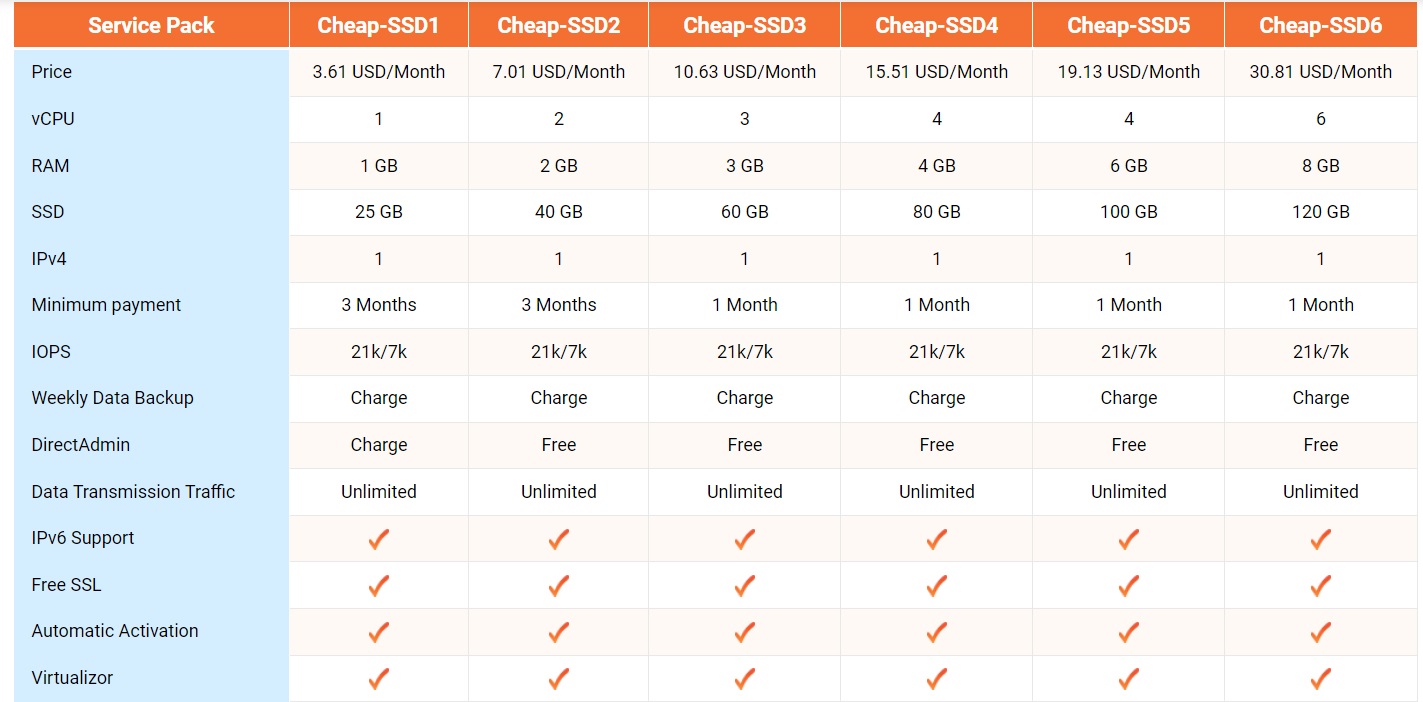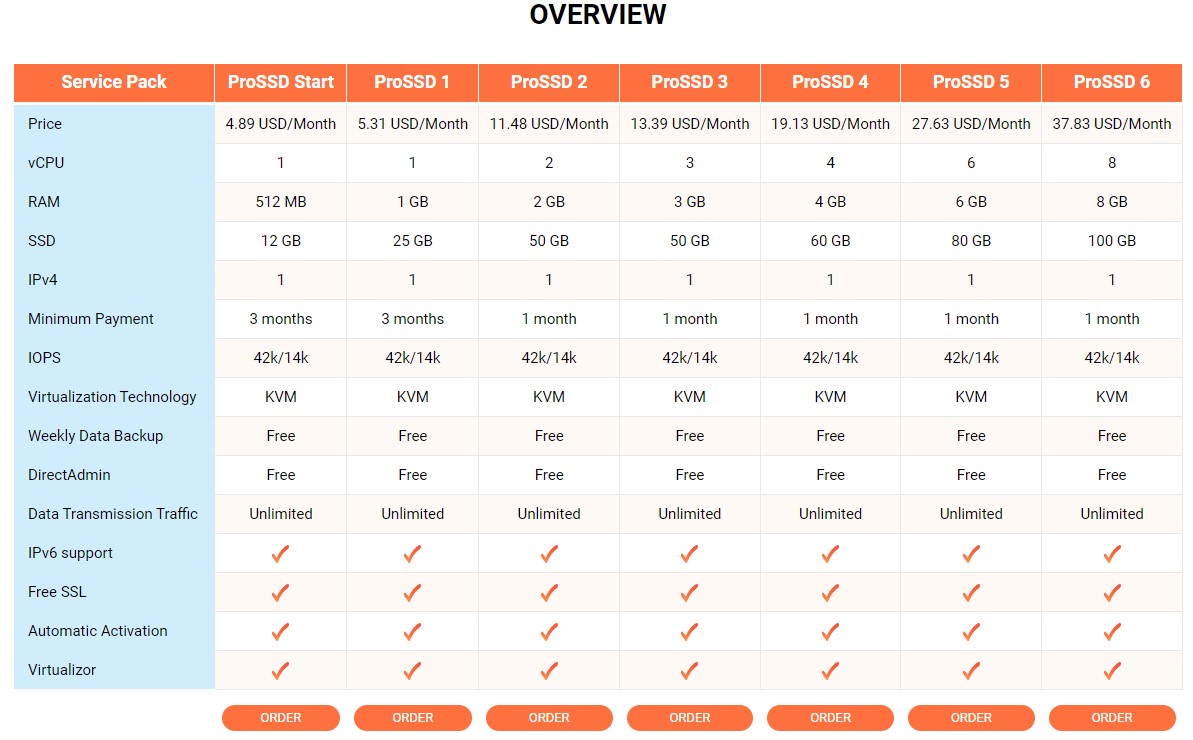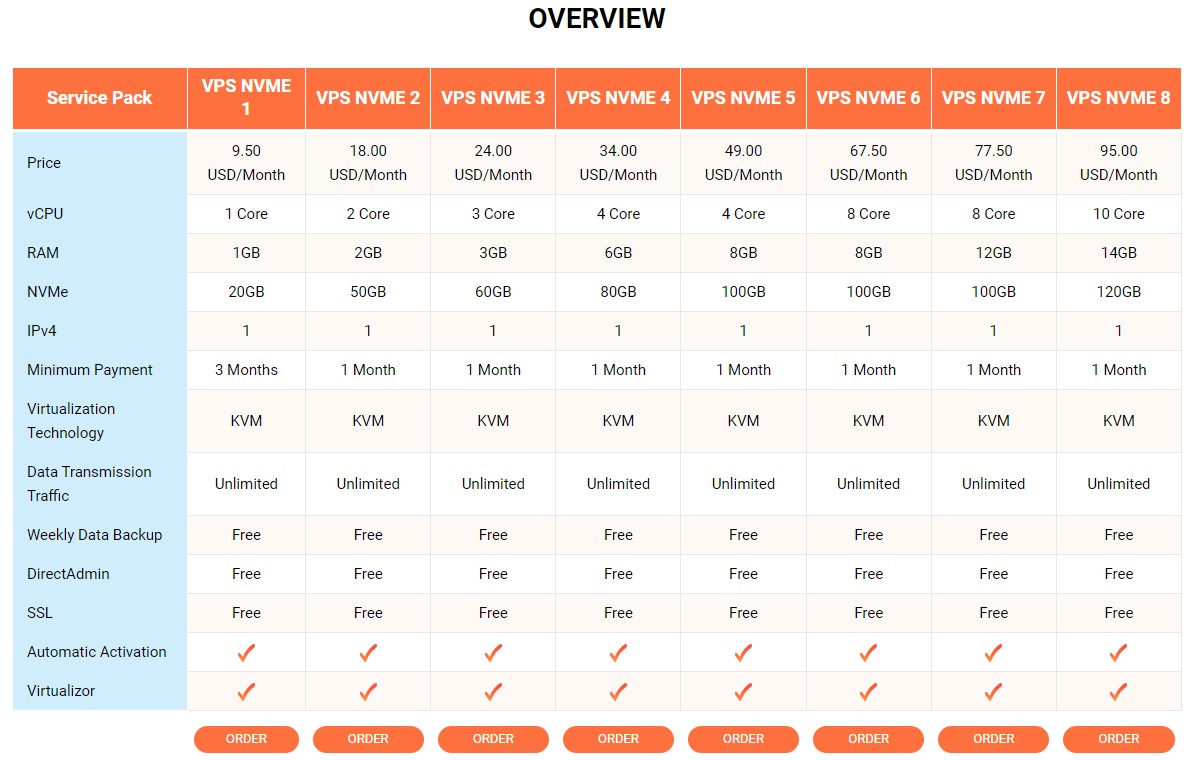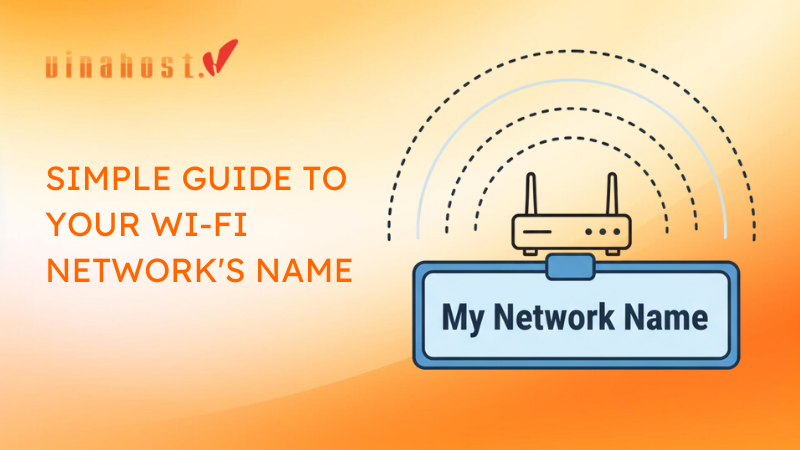Understanding the difference between managed VPS and unmanaged VPS is important for those considering web hosting options. Managed VPS offers convenience in server setup, maintenance, and support, suitable for those who want an easy-to-use experience. In contrast, unmanaged VPS gives you full control to customize and manage the server, making it suitable for individuals or businesses who are tech-savvy and desire flexibility and cost-effectiveness. This article will explore the key differences that will help you choose the right VPS solution for your specific needs.
1. Overview of Unmanaged VPS
1.1. What is Unmanaged VPS?
Unmanaged VPS hosting is a type of unmanaged virtual server service that puts the entire responsibility of management and maintenance on the user.
If you have extensive knowledge of technology or your business has a significant IT team, choosing an Unmanaged VPS server could be a smart decision.
The outstanding advantage of Unmanaged VPS hosting lies in its ability to save costs compared to using the provider’s management service. Thanks to that, it helps optimize financial resources. Additionally, Unmanaged VPS offers greater flexibility, allowing you to fully control and customize system settings to the specific needs of your project or application.

However, not everyone can take advantage of these benefits. Unmanaged VPS means you have to handle all the technical issues yourself, from installing the operating system, managing security, to implementing updates and patches. This not only requires in-depth knowledge but also takes up significant time, time that could otherwise be spent on core business activities.
Besides, not having 24/7 IT support from the supplier is also a big challenge. Any technical issues can become difficult without immediate support, which poses a challenge to system continuity and reliability.
Using Unmanaged VPS depends largely on your resources and technical knowledge. While it offers flexibility and cost savings, it also requires a high level of commitment and technical management ability on the part of the user.
Also Read: What is Linux VPS? | Choosing the Right Linux VPS Provider
1.2. Advantages of Unmanaged VPS
Unmanaged VPS (Virtual Private Server) hosting offers many benefits, especially for users who have the technical ability to manage their own server environment. Here are the main benefits:
- Cost savings: Unmanaged VPS is usually cheaper because it does not include management services, software updates, and technical support.
- Full Control: Users have full control, allowing them to install, configure and optimize the server according to their own needs.
- Flexibility: Can customize the server as desired, from operating system, control panel to software.
- Learning opportunities: An opportunity for users to improve server management and operation skills.
- Security: Users control security measures themselves, ensuring safety in their own way.
- Independent: No dependency on vendors for tasks such as software updates, can be customized to individual needs.
However, unmanaged VPS is best suited to someone with technical skills or someone to help manage the server. If not, a managed VPS service, while more expensive, may be a better choice.
1.3. Disadvantages of Unmanaged VPS
While unmanaged VPS (Virtual Private Server) hosting offers a number of benefits, it also has its challenges and disadvantages, especially for users without technical expertise or financial resources. Here are some main disadvantages:
- Requires technical expertise: Managing an unmanaged VPS requires knowledge of server administration, including software installation and configuration, security management, and troubleshooting.
- Time consuming: Server management can be time consuming. Tasks like updates, backups, and troubleshooting need to be done manually, which requires a lot of effort.
- Responsibility for security: Users must implement and maintain all security measures, including firewalls, malware protection, and software updates. This can be difficult and dangerous if not done properly.
- No technical support: Unlike managed VPS hosting, unmanaged VPS usually does not have technical support from the provider. Users must resolve any issues themselves.
- Complicated setup: Initial setup and configuration can be complicated and require a lot of time and knowledge to operate smoothly.
- Maintenance: Maintenance tasks such as updating the operating system, applying patches, and monitoring server performance must be performed by the user.
- Risk of shutdown: If you are not familiar with server management, the risk of downtime is higher due to misconfiguration or improper maintenance.
- Potential for higher costs: While initial costs may be lower, hiring server administrators or costly errors can increase costs in the long run.
While unmanaged VPS offers greater control and flexibility, it also requires a great deal of technical expertise and commitment to manage effectively. Users should carefully consider their capabilities before choosing this type of service.
1.4. Who needs Unmanaged VPS
Unmanaged VPS (Virtual Private Server) hosting is typically suitable for individuals or businesses with the following characteristics:
- Technical expertise: User has strong skills in server administration, including installing, configuring, and maintaining server software, security management, and technical troubleshooting.
- Developers and system administrators: These people need full control over the server environment to customize software, install development tools, or test applications in a managed environment physically.
- High need for customization: Needs flexibility in setting up software versions, libraries, and configurations not supported by shared hosting or managed services.
- Cost-conscious: Users are budget-conscious and willing to invest time and effort to manage the server, to save on hosting costs compared to managed services.
- Security focused: Prioritize security and have knowledge of implementing and maintaining strong security measures such as firewalls, regular updates, and monitoring.
- High traffic: Websites or applications with heavy traffic need dedicated resources such as CPU, RAM, and bandwidth to ensure stable performance.
- Learning and testing purposes: Individuals or small businesses who want to learn about server administration or test different server configurations.
- Businesses with in-house IT support: Large businesses with in-house IT teams or system administrators can manage and maintain server environments efficiently.
Before choosing unmanaged VPS hosting, it’s important to clearly assess your technical skills, resource requirements, and budget capabilities. While it offers a high degree of flexibility and control, it requires a large commitment of server management and technical expertise to ensure optimal performance and security.

Also Read: What is SSD VPS Hosting? | Everything You Need to Know
2. Overview of Managed VPS
2.1. What is Managed VPS?
Managed VPS, or Managed Virtual Private Server, is a hosting service that provides convenience and ease of use for those without in-depth knowledge of technology or without an IT management team.
When choosing Managed VPS, you don’t need to worry about technical issues such as maintenance, error repair, or software installation. These issues will be the responsibility of the supplier. That helps you focus on other important aspects of your business.
The outstanding advantage of Managed VPS comes from saving time. You and your team don’t need to worry about complex technical tasks, allowing you to focus on growing your business. The system also ensures that any operating system updates are performed properly, keeping your server stable, secure, and efficient.
Another strong point of Managed VPS is its convenience for people without IT expertise. You can rest assured that the supplier’s technical experts will professionally resolve any issues. However, not everyone is suitable for the cost of Managed VPS. Additionally, providing more control to outsiders can also reduce the level of flexibility for those who want to manage the technical details of the server themselves.
Managed VPS offers convenience and time savings for those without IT expertise, but this comes at a high cost and takes away the control that those with advanced technical skills might have. The decision to choose between Managed VPS and Unmanaged VPS will depend on the specific needs and priorities of each business.
Also Read: What is Windows VPS? | Who Should Use a Windows VPS?
2.2. Advantages of Managed VPS
Managed VPS (Virtual Private Server) hosting offers many benefits especially to users who focus on their business or application development rather than managing server infrastructure. Here are the main advantages of this service:
- 24/7 technical support: Users get continuous technical support from the hosting provider. This includes server setup, maintenance, troubleshooting, and resolving technical issues quickly.
- Full server management: The hosting provider takes care of server management tasks such as hardware and software configuration, operating system updates, patching, performance monitoring, and performing regular backups. This reduces the burden on users and ensures the server always operates stably.
- High-end security: Managed VPS providers deploy strong security measures such as firewalls, malware scanning, intrusion detection, and regular security updates. This helps protect data and prevent cyber threats.
- High reliability and uptime: Managed VPS services typically offer higher reliability and continuous uptime. Providers use redundant infrastructure and monitoring systems to minimize downtime.
- Backup and restore data: Managed VPS plans often include periodic backup services and data restoration in case of problems. The provider maintains backups and configurations to ensure easy and quick data recovery.
- Expertise and experience: This service provides access to the expertise and experience of server management experts. Technicians are available to make recommendations and optimize server performance.
- Peace of mind in business activities: By transferring server management to a reliable provider, users can focus entirely on business operations or application development without worrying about server infrastructure, security or issues.
In short, managed VPS hosting is the ideal choice for businesses and individuals who need reliability, high security, technical support, and ease of management. It provides a comprehensive solution for hosting websites and applications with minimal technical costs and maximum peace of mind.
| Some managed VinaHost’s VPS services | ||
| VIRTUAL SERVER INDONESIA | THAILAND VPS HOSTING | VPS HOSTING GERMANY |
2.3. Disadvantages of Managed VPS Managed VPS (Virtual Private Server) hosting offers many benefits but also comes with some disadvantages that users should consider carefully:
- Higher cost: Managed VPS services often cost more than unmanaged VPS services, as they must include the cost of technical support, server management, and security features available in the service package.
- Less control: Users have less control over the server environment compared to unmanaged VPS. This can help people who don’t want technical management to focus on core operations, but also limits the ability to customize and configure the software in detail.
- Depends on supplier: Users rely heavily on service providers for server management, technical support, and updates. This dependency can lead to performance issues or troubleshooting time if the vendor encounters a problem.
- Service limitations: Managed VPS plans may have limitations on certain services or configurations, such as disallowing the installation of certain software or restrictions on adjusting server settings.
- Difficulty learning to use the management interface: Although managed VPSs often have an easy-to-use management interface, users may need time to get used to and take advantage of these features effectively.
- Lack of customization for advanced users: Advanced users or developers may have limitations in customizing server configuration or software in detail, compared to unmanaged services.
- Heavy dependence on technical support: While 24/7 support is a benefit, some users may become too dependent on technical support, fail to develop troubleshooting skills, or be unable to resolve issues on their own.
Managed VPS hosting offers great convenience, support, and security, but users should weigh the limitations and costs to decide whether the service is right for their specific hosting needs.2.4. Who needs Managed VPS?Managed VPS (Virtual Private Server) hosting is great for individuals, businesses and organizations that need a reliable and secure hosting solution without investing too much in technical management. Below are specific cases where using a managed VPS is beneficial:
- Small and medium enterprises: These businesses often do not have enough technical resources to manage servers themselves. Managed VPS helps them focus on their business with ongoing technical support and strong security.
- E-commerce website: Online stores need a safe and stable environment to transact and handle large amounts of traffic. Managed VPS ensures that the website always operates efficiently and securely.
- Professional services: Companies providing services such as lawyers and accountants need a secure and reliable system. Managed VPS offers peace of mind with security features and expert support.
- Developers and Agencies: Web development teams and agencies need a programming environment that is stable and uninterrupted by technical issues. Managed VPS offers this without them needing to worry about server management.
- High Traffic Sites: Sites that receive a lot of traffic need a flexible and reliable scaling platform. Managed VPS helps them handle traffic without interruption.
- Critical applications: Business-critical applications, such as CRM or customer management systems, need a stable and secure environment. Managed VPS meets this effectively.
- Compliance Required: Industries that require compliance such as healthcare or finance can take advantage of managed VPS with high security standards.
- Content Management System (CMS): Websites running on a CMS like WordPress can also benefit from the optimal environment of a managed VPS.
- Startups and Entrepreneurs: Startups need a simple and effective hosting solution to focus on business growth.
- Scaling Businesses: Growing businesses looking to scale their online operations can take advantage of the scalability of managed VPS.
Managed VPS is ideal for those who need a secure, stable, and supportive hosting solution without having to worry about the technicalities of server management.
Also Read: What is Cloud VPS? | Everything You Need to Know
3. What is the difference between Managed VPS and Unmanaged VPS
3.1. Management & Support
Unmanaged VPS requires users to take on full responsibility for server management themselves. From installation to configuration, and even security, everything is within their control. This means they must have in-depth knowledge of the system and network to ensure the server operates stably and safely.
Unmanaged VPS offers great flexibility, but at the same time requires a high level of commitment and technical knowledge.Managed VPS brings a completely different experience. With this service, users don’t have to worry about complicated technical tasks.
A team of experts from the service provider will take care of the entire process of installing, configuring, and maintaining the system. This helps users focus more on growing their business without worrying about technical details.

3.2. Security & Updates
Unmanaged VPS puts a big responsibility on users as they have to update and secure the system themselves. From tracking security patches to applying them, it’s all their job. This requires a high level of technical knowledge and dedication from managers, especially as the online environment regularly faces new threats.Managed VPS helps ease the burden of updates and security.
The managed service provider takes on this responsibility, ensuring that the server is regularly updated and secure. The team of technical experts from this provider regularly monitors new security trends and implements effective prevention measures.
With Unmanaged VPS, users can still receive support from the provider, but this level can be limited and requires the user to have the technical skills to solve the problem on their own.Managed VPS provides a more robust and comprehensive technical support experience.
Users have at their disposal a diverse team of technical experts who are happy to help with all aspects of server management. From system configuration to troubleshooting and security support, this team of experts ensures that every issue is handled quickly and professionally.
Managed VPS frees them from this burden and helps them focus on their core business goals.The presence of an expert technical support team not only helps reduce problem resolution time but also brings peace of mind to businesses.
Also Read: What is VPS Security? | 13 Best Practices for VPS Security
3.3. Control & Customization
Unmanaged VPS allows users to monitor server performance themselves. From testing system resources, monitoring bandwidth, to resolving connectivity issues and enhancing performance, it’s all part of their responsibilities. This provides autonomy and flexibility, but it also means users have to spend a lot of time and effort to maintain a robust and stable system.
With Managed VPS, the provider will have a professional technical team that regularly monitors and evaluates performance, ensuring that the server operates stably and optimized. This helps users save time and resources, reduce technical work pressure and focus more on other important business activities
3.4. Cost Considerations
The cost of Unmanaged VPS is usually cheaper than Managed VPS. This is a result of users having to manage and maintain the server themselves. Businesses with limited financial resources and a good technical team can choose Unmanaged VPS to save costs and maintain greater control.Managed VPS usually has a higher price because it includes many management services.
The service provider is responsible for installing, configuring, and maintaining the system, reducing the technical burden on users. This includes performance monitoring, security management, and professional technical support. While providing convenience and peace of mind, having these services also increases the cost of using a Managed VPS service.
The trade-off between price and utility can be an important decision factor for businesses and organizations. Businesses that need convenience and don’t want to worry about server management can choose Managed VPS.
Also Read: What is MMO VPS? | Everything You Need to Know
4. Choosing the Right VPS for You
When deciding between managed VPS (virtual server) and unmanaged VPS, you should consider the following factors:
4.1. Technical Expertise
- Managed VPS: Suitable for users without much technical knowledge or server management experience. The service provider will take care of the installation, maintenance, security, and updates of the server.
- Unmanaged VPS: Suitable for users with good technical skills. You will take care of the server installation, configuration, and maintenance yourself.
Also Read: What is NVMe VPS? | The Difference between NVMe VPS vs SSD VPS
4.2. Time Commitment
- Managed VPS: Save time because the service provider takes care of most of the administration work. You can focus on your projects without worrying about server management.
- Unmanaged VPS: Requires a lot of time to set up, troubleshoot, update, and manage security.
4.3. Budget Considerations
- Managed VPS: Usually more expensive because it includes the provider’s management services.
- Unmanaged VPS: Usually cheaper because you only pay for server resources, not management services.
4.4. Project Needs
- Managed VPS: Good for projects that need high performance and reliability and don’t want to worry about server management. Suitable for businesses, e-commerce websites, and high traffic websites.
- Unmanaged VPS: Suitable for developers, technology enthusiasts or businesses with internal IT teams who need full control over the server and can manage the server.
Choosing a reputable Unmanaged VPS and Managed VPS service provider is equally important. VinaHost stands out as a reliable partner, bringing many benefits to customers.With a team of leading experts and a high-quality platform, VinaHost provides both Unmanaged VPS and Managed VPS, and is committed to fully meeting speed and resource requirements with reasonable prices and good support. Server quality ensures high speed and almost absolute stability, reducing performance and security risks.When choosing Unmanaged VPS or Managed VPS at VinaHost, you are guaranteed with a series of benefits such as:
- Powerful equipment with SSD and NVMe hard drives (RAID 10) delivers outstanding performance
- Virtualizor management interface is optimized with full features, helping users control the server easily.
- The implementation process is quick and simple, with just a few mouse clicks after payment.
- VinaHost’s 24/7 support team is always ready to help, ensuring that any technical challenges will be resolved quickly.
In addition, VinaHost provides additional management services such as data backup, disaster recovery, and enhanced security, helping to ensure server safety and stability. VinaHost commits to 99.9% uptime, periodic
data backup, IPv6 support, and many other incentives.
CHEAP VPS VIETNAM VPS PRO SSD
VPS PRO SSD
VPS NVMe Additionally, we also provide:
Additionally, we also provide:
5. FAQs
5.1. Can I switch between managed and unmanaged VPS later?
Yes, switching between managed and unmanaged VPS is usually possible but this depends on your hosting provider’s policies and procedures. Here are some key points to consider:
Migrate from managed VPS to unmanaged VPS
- Easy migration: This process can be simple if your hosting provider supports easy downgrades. However, you may lose some managed services, so be prepared to handle server management tasks yourself.
- Data migration: Ensure that your data and configuration are migrated securely. This may involve some downtime and technical work to set up your unmanaged VPS correctly.
Migrate from unmanaged VPS to managed VPS
- Upgrade: Many hosting providers offer an easy upgrade path to managed services. They can take care of migrating your data and setting up managed services for you.
- Cost: Expect costs to increase due to additional management services. Review prices and service levels to ensure they meet your needs.
- Compatibility: Ensure that the applications and configuration on your unmanaged VPS are compatible with the managed service’s environment.
Conversion steps
- Check with your provider: Contact your hosting provider to understand their specific process and any potential costs or restrictions associated with the transfer change.
- Back up data: Always backup your data before making any changes to avoid data loss.
- Plan for downtime: Schedule the switchover during low traffic periods to minimize the impact on your users.
- Test your new setup: After the migration, thoroughly test your server to make sure everything is working as expected.
Switching between managed and unmanaged VPS is possible but requires careful planning and execution to ensure a smooth transition
5.2. Is there a semi-managed VPS option?
Yes, some hosting providers offer semi-managed VPS options. This type of service falls between fully managed and unmanaged VPS, offering a balance between control and convenience. Here’s what you can expect from a semi-managed VPS:
Basic management services
- Initial setup: The hosting provider will help with the initial setup and configuration of the server.
- Basic Maintenance: Vendor will handle routine maintenance tasks such as software updates, security patches, and monitoring.
Limited technical support
- Support coverage: You will receive limited support for certain technical issues, but not as comprehensive as fully managed services. You’ll handle more complex configurations and troubleshooting yourself.
- Support for common issues: Get help with common server issues, but you’ll be responsible for more advanced management tasks.
Control and customization
- More Control: You have greater control over the server than with a fully managed VPS, being able to install and configure software and applications as needed.
- Flexibility: You can customize your server environment to your specific requirements.
When to choose Semi-Managed VPS
- Moderate technical expertise: If you have some technical skills but still need support for certain tasks.
- Time Constraint: If you want to save time on routine maintenance but still keep control of the server.
- Budget: If you need a certain level of management but don’t want to pay the high cost of fully managed services.
- Project Requirements: Suitable for projects that require a combination of support and control, such as growing businesses, developers with multiple projects, or medium-sized sites and small.
Semi-managed VPS provides a middle ground, providing essential management services while giving you the flexibility to control and customize your server environment. This is an ideal option if you need some help but still want to maintain a level of autonomy over your server.
Also Read: What is GPU VPS? | Choosing the Right GPU VPS Provider
5.3. How much does a managed VPS or unmanaged VPS cost?
The cost of managed VPS and unmanaged VPS can vary based on provider, server configuration, and additional features.
Factors Affecting Cost
- Server specifications: CPU, RAM, memory and bandwidth.
- Data center location: Hosting in premium locations may be more expensive.
- Additional features: Backups, advanced security, dashboard, and additional IP addresses.
- Support level: 24/7 or dedicated support may increase costs.
Choosing between managed and unmanaged VPS depends on your budget, technical skills, and specific needs. Managed VPS is more expensive but offers comprehensive support, while unmanaged VPS is cheaper but requires you to manage the server yourself.
5.4. What if I need help with server management tasks on an unmanaged VPS?
If you need help with server management tasks on an unmanaged VPS, you have several options:
Hire a server admin
- Freelancers: You can hire freelance server admins from platforms like Upwork, Freelancer, or Fiverr. They can support specific tasks or ongoing management.
- Managed service companies: Some companies provide server management services no matter which provider you use.
Support from hosting provider
- Paid Support: Some unmanaged VPS providers offer paid support for specific tasks. You can purchase hours or support plans to get help with specific issues.
- Documentation and Community: Many vendors have extensive documentation, tutorials, and community forums where you can find help.
While unmanaged VPS requires you to handle server management tasks, many resources and services can help you manage your server effectively.
Also Read: What is the difference between VPS and Dedicated Server?
6. Conclusion
In short, choosing between managed VPS and unmanaged VPS depends on your technical knowledge, budget, and the level of management you desire for your server environment. Managed VPS offers convenience and support, suitable for those who want to focus on their projects without worrying about server management.
In contrast, unmanaged VPS offers flexibility and cost savings for those who are confident in handling server tasks themselves. By understanding these differences, you can make the decision that best suits your web hosting needs and business goals.


 Tiếng Việt
Tiếng Việt English
English 简体中文
简体中文






























































































